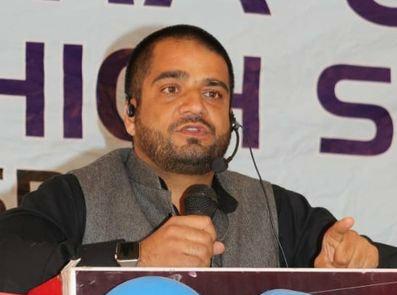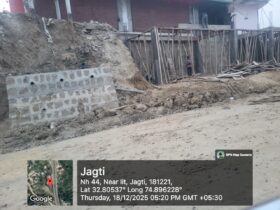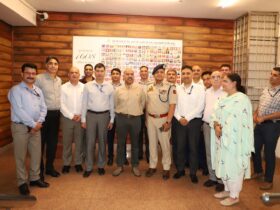Book Review
Islam Restructuring Theology
Author: Asghar Ali Engineer
Publisher: Vitasta Publishing Pvt. Ltd. New Delhi, India
Year of Publication: 2012
Price: Rs 495
Pages: 225
ISBN: 9789380828640
Reviewed By Mushtaq Ul Haq Ahmad Sikander
Islam unlike other religions has the potential and scope of being reinterpreted according to the demands of the age and changed circumstances. The fundamentals of Islam remain the same, but other aspects can be interpreted, this aspect of creative interpretation of Islam is known as Ijtihad. The need for applying minds and trying to reach to certain conclusions while honoring the Islamic tenants i.e. Ijtihad has been particularly emphasized in Islam. Due to various outside threats, unavoidable circumstances and somewhat valid reasons, the door of Ijtihad was closed by the Ulama (religious scholars). Now the obscurantist Ulama aren’t ready to open them, as it will erode their sectarian strongholds and patriarchal interpretations of Islam. In Islam though there is no concept of clergy and that has got its own ramifications, because no interpretation of Islam can be stated as Final Truth. Not being able to build a complete consensus has its shortcomings, but it offers more liberal choices to the masses to follow what according to them is the best interpretation. Some sectarian Ulama and Muslims with vested interests don’t like this dynamism of Islam and want to impose their sectarian interpretation on other Muslims, that leads to clashes and sometimes even to violence. The present book under review by the renowned Islamic scholar, writer and activist Asghar Ali Engineer, doesn’t deal with these aspects of Ijtihad and the problems associated with it. This book is a compilation of his articles that deal with juristic problems and issues and as he writes in the Preface, that he “hopes this book would bring about attitudinal change towards juristic problems in the Islamic world”.
The book is divided into six sessions, and the First Session, Islam and Women Issues deals with the flaws of traditional patriarchal interpretations of Islam, that are antithetical to the Gender Just teachings of Islam. Issues like Family Planning and Marital Rape are discussed and Engineer comes to the conclusion that social customs and unislamic culture does hold the women backward not Islam. He decries the Burqa ban in several western countries, though he is not a vehement supporter of Burqas. This session also discusses about patriarchal Fatwas and women.
The second session is related to Religious Issues in Islam, and discuses various issues like Jihad, and how Islam is being wrongly associated with violence. Engineer holds protection of the environment as Jihad too. The emphasis of Justice being central to Islam, is brought to fore too. The need for Ijtihad is time and again mentioned in these articles. The distinction between Power of Love and Love of Power that makes all the difference is deliberated too, alongwith the creed of Progressive Muslims. Engineer comes out with a novel suggestion, of “transcending all existing madhahib (schools of law) and develop a unified Islamic law applicable to all Muslims which will also give greater meaning to otherwise hollow slogan of Islamic unity. It does not mean that we reject all provisions of existing schools of law but what it means that we must select from all these schools what is best in them and what is in keeping with the Quranic principles and values” (P-81). This suggestion in its essence is good, but how will we develop this unified Islamic law, Engineer doesn’t offer any factual realistic roadmap. Also what laws to leave and what to accept who will decide the same, alongwith the fact that who will guarantee that this unified law will have all the dynamism of change and not become stagnant like its predecessor schools of law?
The next Session Islam and Different Issues, deals with many present day issues like Islam and Post modernism, need for Social reforms, child marriage and Islam, diversity and tolerance, and a host of other issues too. Engineer relates that there are five complimentary values of Islam alongwith the five pillars of Islam. These fundamental values of Quran include “Truth (Haq), Justice (adl), benevolence (Ehsan), Compassion (Rahmah) and Wisdom (Hikmah)” (P-125). He further writes that “let us remember Islam is neither un-democratic nor anti-modern. It is extremely conservative theologians or powerful vested interests who are responsible for spreading the impression that Islam is non compatible with democracy. Justice and equality are very fundamental to Islamic teachings and if this is not democratic, what is?” (P-138).
Engineer is critical of the Western double standards when it comes to Muslims and lambasts the media for portraying a stereotypical image of Muslims. He states that Western Freedom of Conscience and upholding of Human Rights is true only in theory, while in practice it is quite in opposite. Engineer though criticizes terrorism, but factually acknowledges that the hegemony and aggression of West, is resulting in radicalization of Muslim youth as a reaction.
Engineer isn’t oblivious of the influence Ulama have on Muslim masses, hence suggested training Ulama in order to acquaint them with modern day challenges. He also has five suggestions for the Islamic world that include inculcating quality education, developing religious freedom and tolerance instead of Fatwa culture, empowering women and granting them equal status, evolving culture of democracy and human rights and forging Intra religious unity.
The last three sessions deal with Islam in India, Islamic personality and Islam and Politics. They include analysis of revivalist efforts by Shakyh Ahmad Sirhindi, Shah Waliullah Dehlavi, Allama Iqbal and Mawlana Abul Ala Mawdudi. One article is also dedicated to the fourth Caliph of Islam Hazrat Ali (pbuh), and Engineer surmises many things from the speech of US President Barack Obama’s delivered at Cairo’s Al Azhar University, and describes it as a ray of hope.
Overall the book is a worth read as it offers many alternative, pluralistic, new, tolerant, creative and liberal interpretations of Islam about many issues baffling Muslims at present. Engineer though this book, testifies how Islam remains relevant in this present age. This book is a must read for anyone interested in Islam and Muslim issues, but there are certain mistakes that need to be rectified like Engineer wrongly states that Abu Hanifa refused to upheld the doctrine of creation of Quran (P-104, 140) while as in reality it was not Imam Abu Hanifa, but Imam Ahmad Bin Hanbal who refused to do so. The author and publisher must be congratulated for their Endeavour of bringing out such a timely book.
Mushtaq Ul Haq Ahmad Sikander is Writer-Activist based in Srinagar, Kashmir and can be reached at sikandarmushtaq@gmail.com


















Leave a Reply